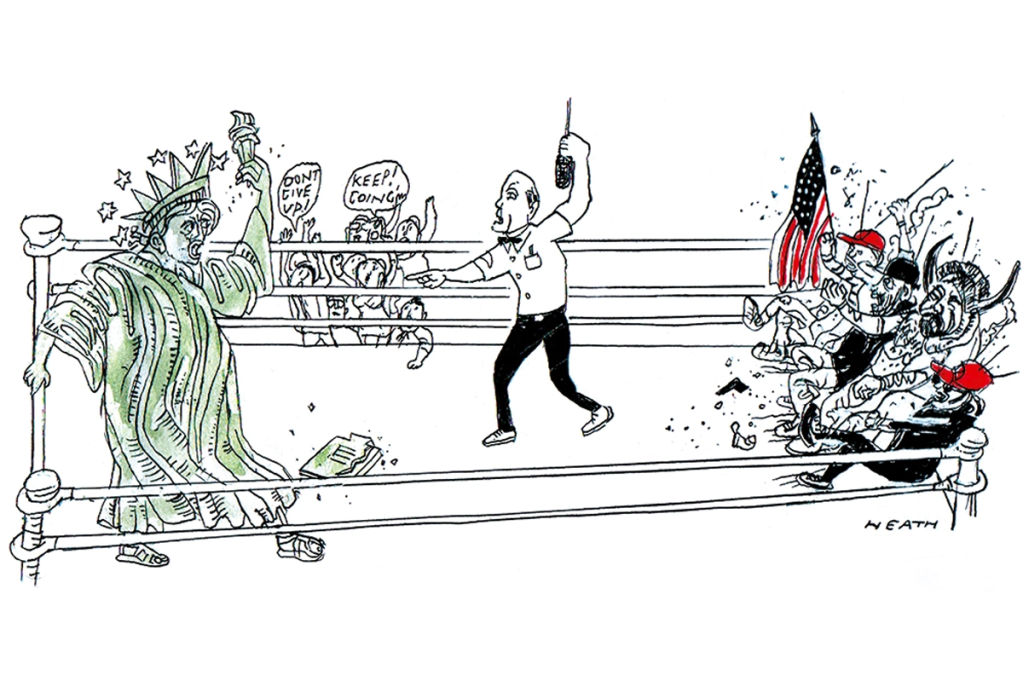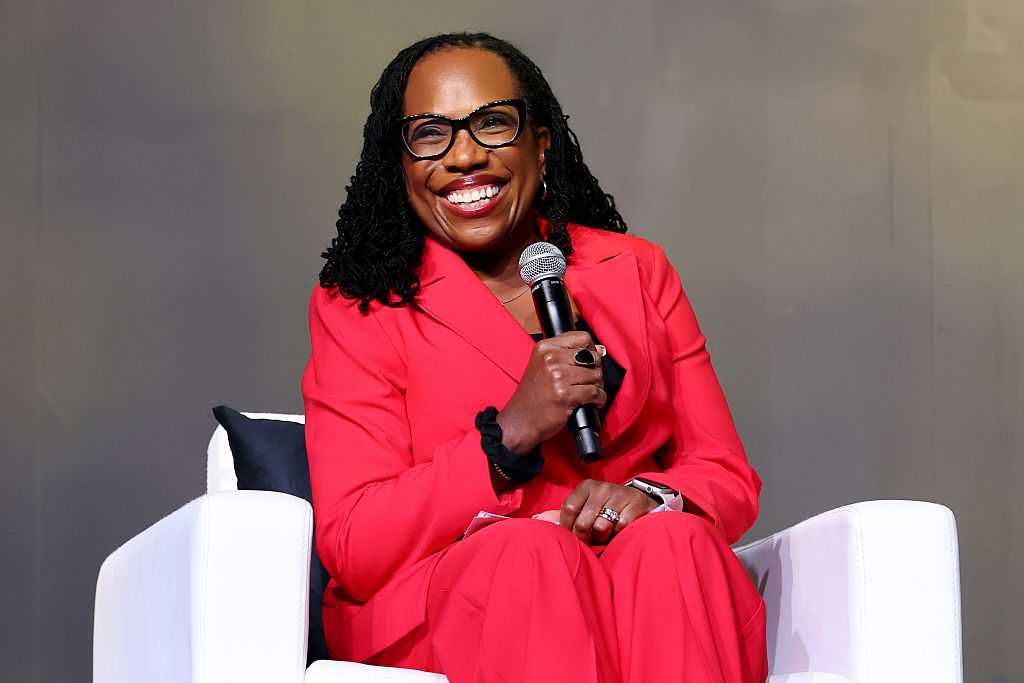Washington, DC
My local polling station is a Christian Brothers high school set amid football fields and parking lots. On Tuesday a woman who lives on our street was arriving to vote just as I was. She had come from a mandatory “active-shooter training session” at her office. Of course, all shooters are “active.” Active shooter is what the TV stations call an armed psychopath during the brief period between the moment he starts gunning people down — say, in a cinema, church, school or office — and the moment he dies in a blaze of police- or self-inflicted gunfire. These episodes don’t happen often, of course, but they make quite an impression on CEOs when they do — and my neighbor is not the first person I know who’s been to a training session about how to deal with them. The firearms experts who ran the session, she said, were military veterans of some sort — and pretty homespun. They explained that an active-shooter incident usually lasts three to five minutes, during which time you would probably want to leave the area. Someone asked what would happen if you couldn’t. Well, you could barricade yourself in a room, one replied, or look for a makeshift weapon. That stapler or something. That wasn’t much of a choice, one of her co-workers said, although you don’t always get good choices in life. “Woampy purty,” he agreed.
Lately I’ve been reading a lot about the transformation of Indian politics since the 1990s. A very useful introduction to right-wing Indian thought is the veteran journalist (and now BJP member of parliament) Swapan Dasgupta’s Awakening Bharat Mata. It begins: “Till the turn of the century, the counting of votes in an Indian general election was a prolonged three-day affair. Since the electronic voting machines were introduced nationally, the tense wait for an outcome has been reduced to barely three or four hours.” The message I take is that delayed election counts are the hallmark of corrupt and underdeveloped twentieth-century sinkholes, and prompt election counts the mark of civilized modern nations on the rise.
The United States is moving in the other direction. Until two elections ago, it was possible to stay up until the contours of a midterm election were crystal clear. But this year five Senate seats and sixty-six House seats were undecided the day after the election. Perhaps there are still some votes to be brought by rickshaw once spring melts the frost in the mountain passes. If you wonder why so many American voters tune out Democrats’ warnings that Republicans are a “threat to democracy,” you haven’t been listening to Democrats’ own plans to make vote counts more opaque. “Elections are not over when the polls close,” said President Joe Biden’s cybersecurity chief Jen Easterly at a Washington event recently, adding: “Sometimes it takes weeks.” Not in functioning democracies it doesn’t.
The reason the count takes so long is the radically expanded menu of voting options introduced during Covid — vote-by-mail, universal absentee ballots, unmanned drop boxes, sometimes even extended deadlines. Democrats — with more institutional memory of “organizing” votes on shop floors, at church gatherings and in care homes — have gravitated to these more free-wheeling forms of voting. Republicans prefer voting at a polling booth on Election Day. You could also say that Democrats want to maximize ballot access, Republicans ballot security. The upshot is that the US is fracturing along yet another axis — it is acquiring two separate voting systems. To oversimplify a bit: just under half the ballots get cast before Election Day by mail — and Democrats win those overwhelmingly. The remainder are dropped in the ballot box on Tuesday and Republicans win those in a landslide. So to the television viewer, election night is no longer an intelligible flow of information. You get what looks like a Democrat landslide as the mail ballots are counted first, then Republicans rally, then Democrats have a final spurt as ballots pour in from urban districts. Not a system best calculated to allay worries about fraud.
Republicans’ failure to lock up the Senate is a blow to Trump’s future. It marks the second election in a row in which he has cost his party the upper chamber. In 2020, he denounced the Georgia election process after his own loss, suppressing his party’s vote in two crucial runoff elections. This year he imposed two candidates on the party for safe-looking seats that immediately became unsafe: Mehmet Oz, a Turkish-American TV doctor; and Herschel Walker, a much-battered football star. They conformed to Trump’s idea of politics: that it’s not really about anything, except watching famous people react to the news.
Gaucherie is easier to forgive than incompetence. Trump’s legal circumstances make it likely he will announce his candidacy soon. But after Tuesday, he will not do so from a position of strength, and his road back to the White House looks more arduous.
This article was originally published in The Spectator’s UK magazine. Subscribe to the World edition here.

























